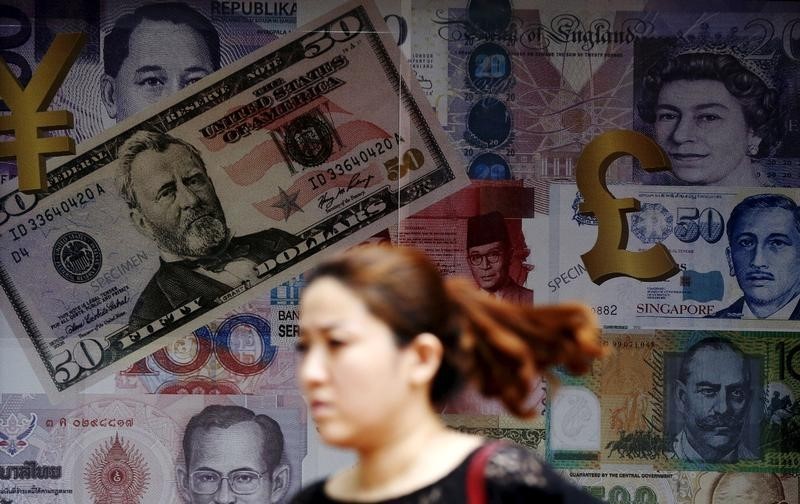Pound Sterling Under Pressure: Deutsche Bank Recommends Selling Amidst Widening Current Account Deficit and Faltering Carry Trade
The British pound has continued its downward spiral this week, decoupling from the upward trajectory of UK yields and raising concerns among analysts. Deutsche Bank has issued a stark warning, recommending investors sell the pound on a trade-weighted basis, citing a confluence of negative factors that paint a bleak picture for the currency’s near-term prospects. The pound’s woes, according to the bank, stem from a widening current account deficit, diminishing yield attractiveness, and the unraveling of a crucial support pillar: carry trade inflows. This confluence of factors has prompted Deutsche Bank to reverse its previous bullish stance, signaling a potentially protracted period of weakness for sterling.
The pound’s recent performance has been nothing short of dismal. Since the start of the year, it has been the worst-performing major currency, echoing the sharp decline witnessed in the aftermath of the ill-fated UK budget announcement in early November. This decline, while seemingly modest at just over 1% on a trade-weighted basis, masks a deeper vulnerability, particularly against a resurgent US dollar. The pound, like many other currencies, is struggling to maintain its footing against the greenback, with several currencies hitting multi-month or even multi-year lows. This dollar strength exacerbates the pound’s underlying weakness, making it an even less attractive investment proposition.
Deutsche Bank’s bearish outlook is underpinned by a deteriorating fundamental backdrop. The bank’s analysis suggests that the UK’s current account deficit, a key indicator of economic health, is showing no signs of improvement. This widening gap between the value of imports and exports puts further pressure on the pound, as it reflects a greater reliance on external financing. Moreover, the volatile global economic landscape threatens to erode the pound’s "yield pickup" – the additional return investors receive for holding UK assets compared to those of other countries. This diminishing yield advantage makes the pound less appealing to yield-seeking investors, further contributing to its decline.
A critical factor in the pound’s recent weakness has been the unwinding of carry trades. Carry trades involve borrowing in a low-interest-rate currency and investing in a higher-yielding one, profiting from the difference. The pound, with its relatively higher interest rates, had been a beneficiary of these inflows. However, as global economic uncertainty mounts, investors are becoming increasingly risk-averse, leading to a pullback from carry trades. This withdrawal of capital has removed a crucial support for the pound, exacerbating its vulnerability to negative pressures.
Deutsche Bank’s shift in stance from holding long positions on the pound in mid-December to now recommending selling underscores the severity of the situation. The bank’s strategists see little reason for optimism in the short term, given the confluence of negative factors at play. The pound’s decoupling from UK yields, a phenomenon observed on Wednesday, further reinforces this pessimistic view. This divergence, reminiscent of the post-budget market reaction, suggests that investors are increasingly discounting the positive impact of rising yields on the currency, focusing instead on the broader economic vulnerabilities.
Going forward, the pound’s trajectory will likely depend on a number of factors, including the evolution of the UK’s current account deficit, the global interest rate environment, and the overall risk appetite of investors. Should these factors continue to deteriorate, the pound could face further downward pressure. The divergence from UK yields serves as a stark reminder that even improving economic indicators may not be enough to offset the broader negative sentiment surrounding the currency. Deutsche Bank’s warning, therefore, underscores the need for caution among investors considering exposure to the pound in the near term. The currency’s vulnerability to both domestic and global economic headwinds suggests that the road ahead could be bumpy, and further declines may be on the horizon.


